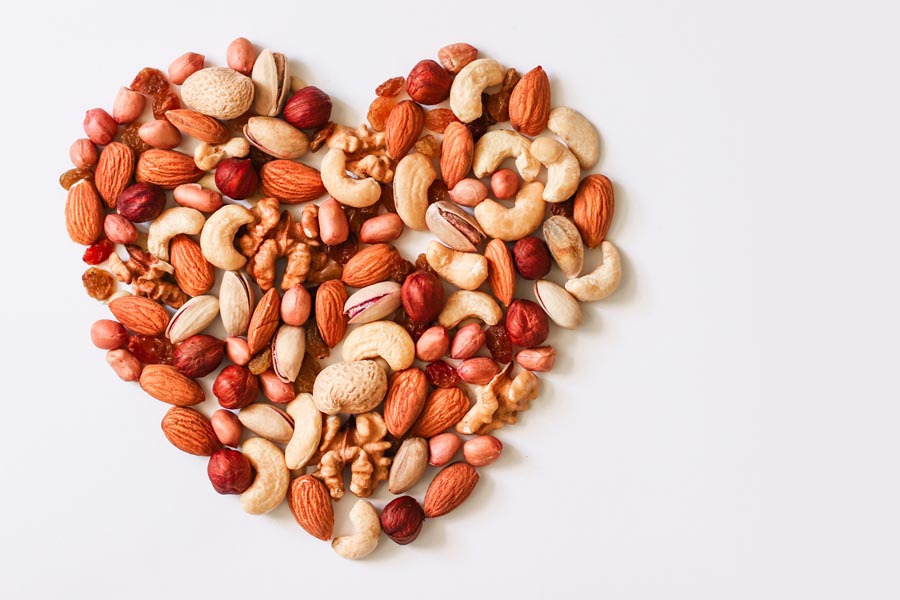Nuts and your heart: Eating nuts for heart health
Discover how walnuts, almonds and other nuts can help lower your cholesterol when eaten as part of a balanced diet.
By Mayo Clinic Staff
Eating nuts as part of a healthy diet may be good for your heart. Nuts contain unsaturated fatty acids and other nutrients. And they’re a great snack food — inexpensive, easy to store and easy to pack when you’re on the go.
How might nuts help your heart?
Research has found that people who are at risk of a heart attack can cut their risk by eating a healthy diet that includes nuts.
Research suggests that eating nuts may:
Lower your low-density lipoprotein (LDL or “bad”) cholesterol and triglyceride levels, which play a major role in the buildup of deposits called plaques in your arteries
Improve the health of the lining of your arteries
Lower levels of inflammation linked to heart disease
Reduce the risk of developing blood clots, which can lead to a heart attack and death
As a result, nuts can improve your heart health and lower your risk of dying early from heart disease and other causes.
What might make nuts heart healthy?
Besides being packed with protein, most nuts contain at least some of these heart-healthy substances:
Unsaturated fats. It’s not entirely clear why, but it’s thought that the “good” fats in nuts — both monounsaturated and polyunsaturated fats — lower bad cholesterol levels.
Omega-3 fatty acids. It’s well known that omega-3 fatty acids are found in fish, but many nuts also are rich in omega-3 fatty acids. Omega-3s are healthy fatty acids that seem to help your heart by, among other things, preventing irregular heart rhythms that can lead to heart attacks.
Fiber. All nuts contain fiber, which helps lower your cholesterol. Fiber also makes you feel full, so you eat less. In addition, fiber is thought to play a role in preventing type 2 diabetes.
Vitamin E. Vitamin E may help stop the development of plaques in your arteries, which can narrow them. Plaque development in your arteries can lead to chest pain, coronary artery disease or a heart attack.
Plant sterols. Some nuts contain plant sterols, a substance that can help lower your cholesterol. Plant sterols are often added to products such as margarine and orange juice for additional health benefits, but sterols occur naturally in nuts.
L-arginine. Nuts are also a source of L-arginine, which is a substance that may help improve the health of your artery walls by making them more flexible and less prone to blood clots that can block blood flow.

